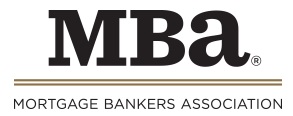WASHINGTON, D.C. – May 13, 2011 – (RealEstateRama) — David H. Stevens, President and CEO of the Mortgage Bankers Association, testified today before the Senate Committee on Banking, Housing and Urban Affairs’ Subcommittee on Housing, Transportation and Community Development on “The Need for National Mortgage Servicing Standards.”
Below is Mr. Stevens’ oral statement before the subcommittee, as prepared for delivery.
“Thank you, Chairman Menendez, and Ranking Member DeMint for the opportunity to testify today on the need for national mortgage servicing standards. On May 1, I began my tenure as President and CEO of the Mortgage Bankers Association. Most recently, I served as Assistant Secretary for Housing and Federal Housing Commissioner at HUD and I have been actively involved in the mortgage finance industry for over 30 years.
“In 2008 we faced a “perfect storm” as the global economy collapsed, the subprime market imploded, many Americans lost their jobs and millions of Americans defaulted on their mortgages, putting extraordinary strains on the existing servicing system. It is clear that our industry was unprepared to handle these unprecedented events and that we made mistakes. Acknowledging our mistakes is the first step in rebuilding trust in our industry and our actions. Without trust, our industry is nothing; and by trust, I mean the ability of policymakers, thoughtleaders, borrowers and the industry at large to have faith in the products and services we provide. We must do better moving forward.
“I can assure you that the mortgage finance industry and servicers in particular have not stood still in addressing their mistakes. Many have put in place training, internal controls and independent, third party auditors, adding people and improved technology needed to move forward.
“Presently, servicers face a growing number of checks and balances, ranging from federal laws and regulations, such as RESPA and TILA, to fifty state laws, regulations, and local ordinances, as well as court rulings and FHA, VA, and Rural Housing servicing requirements. These requirements are in addition to Fannie Mae standards, Freddie Mac standards, and other contractual obligations. In short, servicers are faced with complex and often contradictory rules and regulations, many of which are still emerging.
“What is the answer?
“A consolidated servicing standard that could drive these reforms.
“Creating an industry standard would streamline and eliminate many of these overlapping requirements, providing clarity and certainty for borrowers, lenders and investors alike.
“It is critical that all of the federal regulators involved act in a coordinated manner to establish one national consolidated servicing standard that applies to the entire industry, rather than piling on requirement after requirement.
“A national standard should start with a complete analysis of existing servicer requirements and state laws governing foreclosures. Development should include an open dialog with stakeholders in the servicing arena, all of whom must ultimately implement and comply with the national standard.
“MBA has initiated this process by convening a blue-ribbon Council on Residential Mortgage Servicing. That Council examined the entire servicing model and is forming recommendations to improve the system for all stakeholders. I am pleased to announce that we are releasing the preliminary White Paper from the Council today and ask that it be included as part of my written testimony.
“In the White Paper, the Council aims to examine the current servicing model, address public misconceptions relating to servicing practices and incentives, and educate the public on the role and compensation of servicers. I believe this White Paper will provide useful information to you and other policymakers that are currently debating national servicing standards. I encourage this subcommittee to use MBA and it’s Council on Residential Mortgage Servicing as a resource going forward.
“In conclusion, as we develop servicing standards, I will urge you to pay careful attention to the interdependence of servicing and the impact that changes to the servicing system will have on the economics of mortgage servicing, tax and accounting rules and regulations, and the effect of the new requirements on Basel capital requirements and on the TBA market.
“Servicing does not exist in a vacuum; instead it is part of a broader “ecosystem” which involves all the varied elements of the mortgage industry. The housing market remains fragile. Therefore, when considering changes to the current model, policy makers must be mindful of unforeseen and unintended consequences that could ultimately result in higher housing costs for consumers and reduced access to credit.
“As I mentioned at the beginning of my remarks, I have spent more than thirty years in this industry. Despite what we have just lived through, and the challenges we continue to face, I am optimistic that we can successfully address the challenges in the mortgage servicing system.
“Mr. Chairman, MBA supports reasonable national servicing standards that apply best practices to the process to better serve the needs of borrowers, servicers, and investors alike.
“Again, we want to be part of the solution and look forward to working with you and other policymakers towards that end.”
###
The Mortgage Bankers Association (MBA) is the national association representing the real estate finance industry, an industry that employs more than 280,000 people in virtually every community in the country. Headquartered in Washington, D.C., the association works to ensure the continued strength of the nation’s residential and commercial real estate markets; to expand homeownership and extend access to affordable housing to all Americans. MBA promotes fair and ethical lending practices and fosters professional excellence among real estate finance employees through a wide range of educational programs and a variety of publications. Its membership of over 2,200 companies includes all elements of real estate finance: mortgage companies, mortgage brokers, commercial banks, thrifts, Wall Street conduits, life insurance companies and others in the mortgage lending field. For additional information, visit MBA’s Web site: www.mortgagebankers.org.













